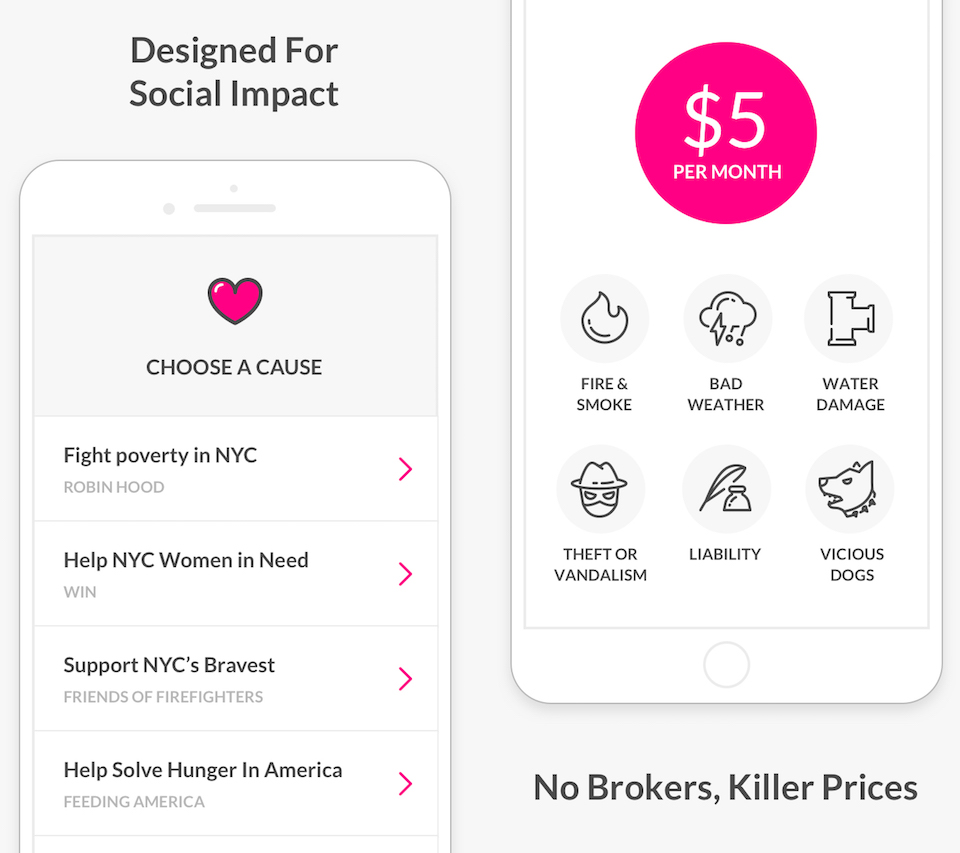US TAB
emotional insurance

With society in such transitional flux, it comes to no surprise that people look towards anything that provides comfort and well-being, and today, that could include insurance. Insurance has historically been considered to be one of the least trusted industries within the United States economy. High premium prices combinedwithfailureto pay claims have led many Americans to think of insurance companies as greedy and deceitful. Especially today, with the American society in constant conflict, people want to be able to turn to insurance for exactly what it is supposed to do—providing a sense of security and comfort. Lemonade is a New York City-based insurance company that does exactly this by designing a new set of values based on transparency, providing an entirely new experience for home and rentals insurance. It was founded just in 2016 with the intention of becoming “a social good for members of the community to take care of each other,” transforming the traditional model of insurance companies by integrating technology and transparency. This trending type of relationship between brands and customers, which is not necessarily based on spending more, is essential for new business models to gain the trust of the American people within society while continually building brand loyalty. With rising companies like Lemonade, consumers canfeelcomfortin the fact that they are being taken care of while also caring for others.
Lemonade is based online and in an app, truly playing to the consumers’ emotions by donating unclaimed premiums to a nonprofit of the customer’s choice at the end of the year through its Giveback initiative. By branding emotionally, companies can effectively meet the expectations of consumers, especially within the millennial age group. In markets under the age of 35, an element of “giving back” has become more and more important in the way consumers shop for any type of product. In a society consistently revolving around conflict, consumers want to feel as though they are doing good when they shop. Adding an element of charity might feel trendy in the world of business, but it is essential that all actions are carried out with authenticity to create true value and true connections. Brands which incorporate an element of charity are building a lifestyle that makes customers feel as though they are creating a meaningful impact when continually coming back to purchase their products and services. These types of lifestyle brands have been wildly successful within the fashion industry, so why not transition a similar type of branding to the insurance industry?
by Chloe Sos & Abigail Bowen

